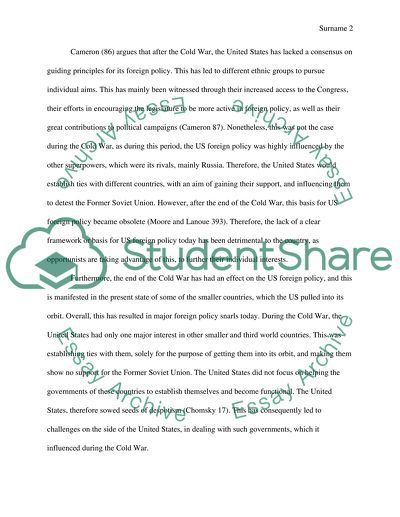The Effect of the End of the Cold War on U.S. Diplomatic Practices Essay. Retrieved from https://studentshare.org/history/1491149-the-effect-of-the-end-of-the-cold-war-on-us-diplomatic-practices
The Effect of the End of the Cold War on U.S. Diplomatic Practices Essay. https://studentshare.org/history/1491149-the-effect-of-the-end-of-the-cold-war-on-us-diplomatic-practices.


